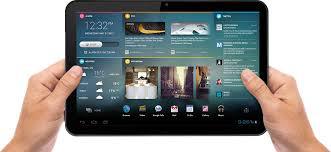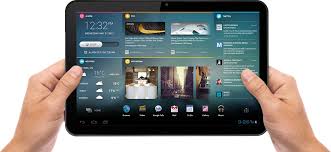
Even while smart phone sale continues to grow worldwide, the sale of tablets is expected to slow down in 2015. According to a forecast by Forrester both the shipment and sale of tablets would be hit during the current year. Forrester Research is a premier research and advisory firm that works in the business and technology sector developing research reports.
Even while Forrester estimates that the use of tablets would touch 580 million consumers by the end of 2015, the number of tablets shipped and sold in the first quarter of 2015 has not been encouraging for the tablet manufacturing companies.
The research claims that the tablet market is quite volatile but the segment would be upheld by corporate users. The report however provides some respite for the manufacturers and operators as the report predicts a rise in the use of tablets in the enterprise setting and the bring-your-own-device (BYOD) concept would continue to grow as a prominent practice among the information workers worldwide.
Tablets stormed the technology market around 2013 and threatened to dilute the PC market especially among the working people. The light weight and portability of the wireless device was the USP of the product. However despite initial euphoria, the tablet market hit a plateau in 2014. The initial months of 2015 have recorded a low growth for the device once believed to overtake PCs and laptops in usage. The Forrester report states that the tablet market would continue to grow during the rest of 2015 aided by the increasing sale of company-owned tablets which has shown a growth rate much higher than the average tablet market rates.
A major reason for the slowdown in the growth of tablet is attributed to the inclination of the current owners of tablets to replace their older tablets with new models. The report also indicates the lack of genuine new innovations is one of the reasons for lack of interest to change the old models.
Citing the brighter side of global tablet sale, the report states that the rapid growth of the company-purchased tablet segment. The share of company-purchased tablet segment is expected to grow from 6% in 2010 to 20% by 2018. This growth rate exceeds the overall growth of the tablet market. The growth in the company-purchased tablet segment is seen in all the types of tablets – be it the Apple iPads or Windows-based or Android based devices.
The addition of a host of applications to tablets has also helped in the limited growth. The enterprise growth of the segment is primarily attributed to the partnership between Apple and IBM which has given rise to application related to iOS. The report also illustrates the growing importance of Microsoft’s partnership with Dell which is expected to grow with the advent of Windows 10 OS. Enterprise growth has also been fostered by the ‘Android for Work’ initiative for Android driven platforms.
Growing awareness about energy consumerization has also increased the tendency of companies opting for tablets instead of PCs. The report states that workers also find using tablets more convenient, especially those attached to information industries. Therefore companies are now opting for company owned devices to be given to the employees or for sharing among the employees. Other business sectors that are increasingly shifting to the use of tablets include category of workers like the package delivery driver, retail sales associates, car-return specialists at car rental companies, menus at restaurants and field technicians. Ending the report, Forrester notes that the future of the tablet industry would be driven by enterprise driven sectors and the company owned segment of tablets.
(Source: http://www.forbes.com)
Even while Forrester estimates that the use of tablets would touch 580 million consumers by the end of 2015, the number of tablets shipped and sold in the first quarter of 2015 has not been encouraging for the tablet manufacturing companies.
The research claims that the tablet market is quite volatile but the segment would be upheld by corporate users. The report however provides some respite for the manufacturers and operators as the report predicts a rise in the use of tablets in the enterprise setting and the bring-your-own-device (BYOD) concept would continue to grow as a prominent practice among the information workers worldwide.
Tablets stormed the technology market around 2013 and threatened to dilute the PC market especially among the working people. The light weight and portability of the wireless device was the USP of the product. However despite initial euphoria, the tablet market hit a plateau in 2014. The initial months of 2015 have recorded a low growth for the device once believed to overtake PCs and laptops in usage. The Forrester report states that the tablet market would continue to grow during the rest of 2015 aided by the increasing sale of company-owned tablets which has shown a growth rate much higher than the average tablet market rates.
A major reason for the slowdown in the growth of tablet is attributed to the inclination of the current owners of tablets to replace their older tablets with new models. The report also indicates the lack of genuine new innovations is one of the reasons for lack of interest to change the old models.
Citing the brighter side of global tablet sale, the report states that the rapid growth of the company-purchased tablet segment. The share of company-purchased tablet segment is expected to grow from 6% in 2010 to 20% by 2018. This growth rate exceeds the overall growth of the tablet market. The growth in the company-purchased tablet segment is seen in all the types of tablets – be it the Apple iPads or Windows-based or Android based devices.
The addition of a host of applications to tablets has also helped in the limited growth. The enterprise growth of the segment is primarily attributed to the partnership between Apple and IBM which has given rise to application related to iOS. The report also illustrates the growing importance of Microsoft’s partnership with Dell which is expected to grow with the advent of Windows 10 OS. Enterprise growth has also been fostered by the ‘Android for Work’ initiative for Android driven platforms.
Growing awareness about energy consumerization has also increased the tendency of companies opting for tablets instead of PCs. The report states that workers also find using tablets more convenient, especially those attached to information industries. Therefore companies are now opting for company owned devices to be given to the employees or for sharing among the employees. Other business sectors that are increasingly shifting to the use of tablets include category of workers like the package delivery driver, retail sales associates, car-return specialists at car rental companies, menus at restaurants and field technicians. Ending the report, Forrester notes that the future of the tablet industry would be driven by enterprise driven sectors and the company owned segment of tablets.
(Source: http://www.forbes.com)





